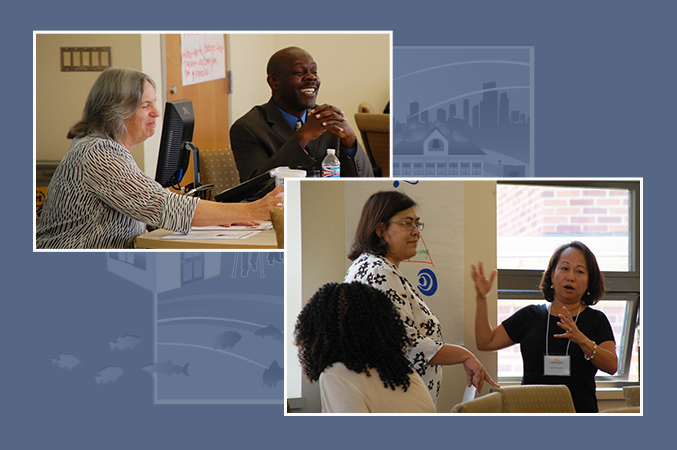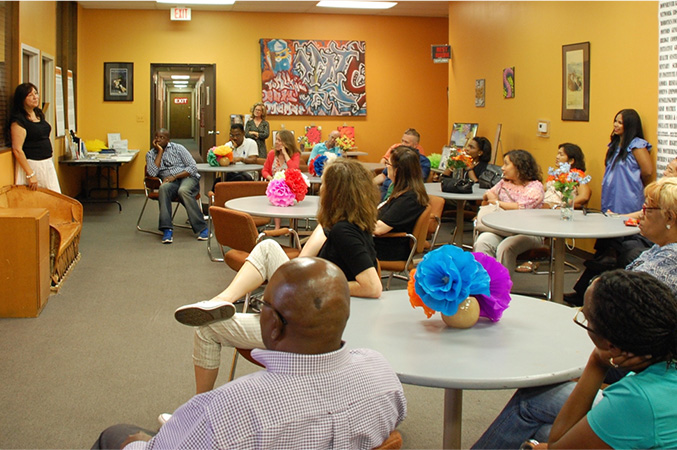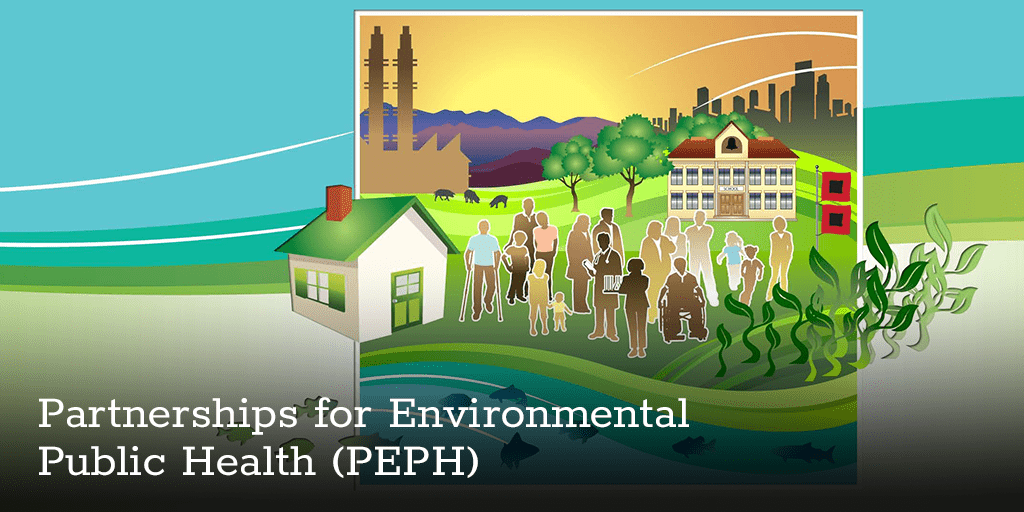A curriculum that incorporates community-based participatory research (CBPR) principles into hands-on training prepares teams of academic and community partners to address health inequities. The Detroit Urban Research Center, a longstanding CBPR partnership between the University of Michigan and community organizations that addresses health inequities in Detroit, developed the Community-based Participatory Research Partnership Academy to increase the capacity of academic and community partners to conduct CBPR. The yearlong program is available to applicants nationwide.
“We wanted to ensure our curriculum put CBPR principles into action so that participants new to this area could get a feel for CBPR, learn in an equitable manner, and build partnerships”, stated Chris Coombe, Ph.D., who co-leads the CBPR Partnership Academy with Barbara Israel, Dr.P.H.
The program begins with a one-week intensive course during which pairs of researchers and community partners participate in hands-on learning experiences. The course is the foundation of the yearlong program that also includes mentoring, a partnership development and project grant, and ongoing learning forums among participants to deepen and apply learning. Participants shared their accomplishments at the CBPR Partnership Academy Symposium in 2019. Many partnerships have been successful in a number of areas, including:
- Conducting workshops on CBPR with local community organizations and academic researchers.
- Dissemination of research findings to community and policy audiences.
- Obtaining additional funding to conduct CBPR projects aimed at addressing community-identified health inequities.
A recent paper, co-authored by the Detroit Urban Research Center’s community and academic partners, described how the novel curriculum promotes equitable partnerships between researchers and community members.
Incorporating CBPR Into an Active Learning Model
The week-long, in-person course teaches participants how to develop partnerships and to apply a CBPR approach to all aspects of research, including data collection and analysis, design, ethics, and evaluation. It also teaches how to communicate findings back to the community. During the week, participants visit Detroit community-based partner organizations with a history of CBPR efforts that address issues such as environmental justice, housing and equitable development, and youth engagement. For example, at the Detroit Hispanic Development Corporation, participants saw opportunities for youth involvement in robotics, digital music production, arts, and community organizing, while also learning about research and action to address air pollution from local industries.
Participants saw how these organizations serve as centers of community resilience, strength, and power, and learned how they lead CBPR efforts to collaboratively address local health issues. Through these experiences, participants were better able to understand how to address health inequities in their own communities through CBPR.
Participants are shown during the site visit to Detroit. (Photo courtesy of Chris Coombe)
To develop the curriculum for the weeklong training, the Detroit Urban Research Center adapted an established experiential learning model. Trainees found the learning meaningful as they were able to apply knowledge in real time to practical situations, make decisions, and reflect on them.
Community and academic instructors expanded existing principles of the experiential learning model by adding two CBPR principles:
- Diversity among participants and program faculty promotes collaboration and equity.
- Learning is enhanced by collaborative co-learning, during which participants learn with and from each other, which builds partnerships.
Active learning, co-learning, and relationship-building were promoted through interactive methods and activities such as practice applying a CBPR approach to surveys, focus groups, case studies, and analysis.
Principles of equity and diversity were key pieces of the curriculum. Modeling equity, all sessions were co-taught by community-academic instructor pairs. Diversity was reflected in the demographics and backgrounds of the instructors and participants. Over half of all instructors and two-thirds of participants were Black, Indigenous, and people of color, and a majority were women.

On the top-left, course instructors Barbara Israel, Dr.P.H., and Zachary Rowe, Executive Director of Friends of Parkside, lead discussions. On the bottom-right, a participant pair takes part in an activity defining their new partnership. (Photos courtesy of Chris Coombe)
Community Members and Academic Researchers Learn Together
The week-long course, described in the research paper, was attended by 12 pairs of academic and community partners, facilitating co-learning where individuals learn together and from each other, which is key to CBPR. The paired trainees applied to the program together with the intention of leading CBPR in their communities, so developing the partnership between the participant pairs was a critical component of the course and subsequent yearlong activities.
“The Partnership Academy strongly emphasizes co-learning between community and academic partners because sharing knowledge and expertise of all partners is central to CBPR”, stated Zachary Rowe, founding Board member of the Detroit Urban Research Center. “Power sharing is facilitated by learning with and from each other and this promotes respect, trust, and an equitable relationship. Applying what they learn in the program helps lay the foundation for strong effective CBPR partnerships in their own communities.”
The pairs worked together and with other participants to facilitate relationship building and shared learning across the cohort.
Hands-on Learning Builds CBPR Knowledge
The Detroit Urban Research Center conducted an evaluation of the weeklong training course to determine whether it increased participants’ capacity to conduct CBPR. The evaluators also examined what participants thought about course material and the quality of instruction.
Participants highly rated their ability to understand core CBPR competencies such as the phases and principles of CBPR, quantitative and qualitative methods, ethical considerations, and forming and evaluating partnerships. Participants also indicated that the most beneficial parts of the course were the instructors’ knowledge and modeling of CBPR, the site visit to Detroit, and the ability to build relationships within their pairs and cohorts. The evaluators also used the results to further refine the course.

Participants learn from Angela Reyes of the Detroit Hispanic Development Corporation during the site visit to Detroit. (Photo courtesy of Chris Coombe)
As one participant said about the site visit, “The trip to Detroit was the highlight of the week. The community partners are doing the work they are doing not because of the academic partners, but in concert with the academic partners, and that makes all the difference.”
“Overall, we saw that participants felt they were better able to understand CBPR core concepts and use this knowledge in their own work”, added Coombe. “Participants built equitable partnerships that they can carry forward into work in their own communities, addressing health inequities through CBPR.”
With funding from NIEHS, the Detroit Urban Research Center is currently selecting the fifth cohort of community-academic partners to begin in June 2022 (application period is closed).
Source link
www.niehs.nih.gov

